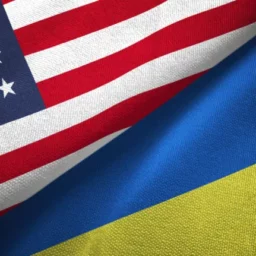

Republicans Divided on Foreign Policy
As memory of the Cold War fades, so does support for American primacy.


Kosovo President and Opposition Leader Indicted for War Crimes
A reckoning for 2500 Kosovar Serb civilians who were slaughtered is at hand.


The War On Yemen, Congress, And The Constitution
The Wall Street Journal tries, and fails, to defend President Trump’s indefensible veto of the Congressional resolution regarding the war on Yemen.


Greece And Macedonia Settle Three-Decade Long Name Dispute
Greece and the former Yugoslav Republic of Macedonia have apparently finally settled a three-decade old name dispute.
Trump Administration Argues It Didn’t Need Congressional Authorization To Attack Syria
Echoing the Obama Administration, the Trump Administration is arguing that it did not need Congressional authorization to attack Syria earlier this year.
Attacking Syria Without Congressional Authorization Would Be Illegal
Without Congressional authorization, any attack on Syria would be illegal, but don’t expect Congress to do anything about it.
Trump Administration Claims It Needs No Legal Authorization To Keep Troops In Syria
Continuing a long-standard tradition, the Trump Administration claims it doesn’t need to get legal authorization to keep American troops in Syria.
Collapse of the Global Elite?
Elliot Cohen laments the lack of steel in the spine of the statesmen, diplomats, soldiers, and thinkers of the current generation.


Congress Needs To Act In Response To Trump’s Illegal War In Syria
With the Administration set to commit the United States to a forever war in Syria, it’s time for Congress to act.


Supreme Court To Hear Argument In Free Speech Case
An important free speech case is coming up this week at the Supreme Court.
Elie Wiesel, Holocaust Survivor, Author, And Human Rights Advocate, Dies At 87
A man who survived great horrors to become a tireless witness for truth and advocate for human rights has passed away.
Time for an American Foreign Legion?
A respected scholar has an interesting suggestion for fighting the Forever War.
NATO Admitting Montenegro As Full Member For Some Reason
NATO is extending full membership to the tiny nation of Montenegro, and there doesn’t seem to be a good reason why they’re doing it.
Second Term Blues?
The sixth year of a presidency leads to some predictable commentary (and some comparative notes).
Congress Ready To Abdicate Its Responsibility On Attacks Against ISIS
Congress seems ready to avoid having to vote on expanded attacks against the Islamic State


Viet Xuan Luong Becomes First Vietnamese-American General
Viet Xuan Luong pins on a brigadier general’s star today, becoming the first Vietnamese-American officer to achieve that rank.


American Skepticism About Interventionism Is A Return To Historical Norms
Americans are skeptical about getting involved in the Ukraine crisis. This isn’t a surprise.
Americans Have Mostly Negative View Of Putin And Russia
The Cold War may be over, but the negative opinions in the U.S. regarding Russia and its leadership seem to have continued.
Obama Syria Speech Instant Reaction
I’ve been up since 3 am and drinking since 6 pm, so my reaction to a presidential war speech at 9 am may not be the definitive word
Obama Won’t Go To Congress, Because History Has Taught Him He Doesn’t Have To
Presidents have gotten away with ignoring Congress when it comes to foreign military adventures for a very long time.


Syria: What Now?
As President Obama’s red line has been crossed more brazenly, he continues to sound reluctant to intervene in Syria while positioning forces to do just that.


Bill Clinton Criticizes Obama on Syria
Former President Bill Clinton says President Obama should ignore the polls and intervene in Syria.


The Future of Conservative Foreign Policy
The Republican Party needs a new message on foreign policy that is true to the conservative principles of the base and yet has a broad appeal to the American public.


Russia And Syria: More Than Meets The Eye
The factors influencing Russian policy in Syria are many, and some of them are quite ancient.
Obama’s Second Term Would Be Neither Groundbreaking Nor A Calamity
The truth about a Second Obama Term is that it likely wouldn’t be all that remarkable.
Police Violence and Perpetual War
Why we shouldn’t be surprised that police are using tools of violence against protestors.


Honor Fallen SEALs by Questioning Their Mission
Honoring the fallen by ensuring that the didn’t die in vain is a recipe for getting more good men killed.


Ten Congressmen Sue President Obama Over Libya Mission, War Powers Act
Dennis Kucinich and nine other Members of Congress are suing the President. They won’t get very far.
Is the U.S.-European Relationship Really in Decline?
My latest piece for The Atlantic, “Is the U.S.-European Relationship Really in Decline?” is posted.


The Constitutionally Dubious War Powers Act
Clearly there’s a large ambiguity in the Constitutional gap between the two separate war-related powers of Congress and the Executive. The WPA can be seen as an attempt to resolve it but can’t if it’s unconstitutional.


Desert Storm Syndrome
Technology has saved the lives of countless American soldiers. But it’s made going to war easier.
Leading From Behind: To Where?
An aide’s compliment about the president “leading from behind” has generated controversy.
Was There Really An Imminent Humanitarian Crisis In Libya?
President Obama says he acted in Libya to avert an imminent genocide, but there’s no evidence that any such thing was about to occur.


Libya and the Intervener’s Dilemma
President Obama has pledged no slaughter and no ground troops for Libya. He may well be forced to pick one.
Libyan War Coalition One Of The Smallest In Decades
President Obama’s grand coalition against Libya is a lot less than meets the eye.
Libya And The White House: What We Have Here Is A Failure To Communicate
The public, and Congress, are skeptical of the mission in Libya, and the reason for that is because the President has failed to tell us exactly why we’re there and what we’ll be doing.


Is Dissent Permissible During Wartime?
When America’s leaders make the decision to engage in military action abroad, has the time for debate ended, or is it more important than ever that those with doubts about the policy speak out?


Congress, The President, And War Powers Under The Constitution
Operation Odyssey Dawn has resurrected the eternal battle over what limits there are, and should be, on the President’s ability to use military force without Congressional authorization.


The Case Against War
There must be a predisposition against war and we should only engage in just wars.
If Gaddafi Stays In Power, Then What’s The Point Of Intervention?
U.S. officials are making clear that the current mission in Libya may not lead to the end of Muammar Gaddafi’s rule. If that’s the case, then why are we there in the first place?
The Intervener’s Dilemma
There are many opportunities to go to war. Here’s a guide for choosing between them.
Obama’s Road to War
Did President Obama pull off a diplomatic masterstroke? Or is he muddling through?


Yet Another War
America is about to enter a third war in the Muslim world with no clear idea of the end game.





